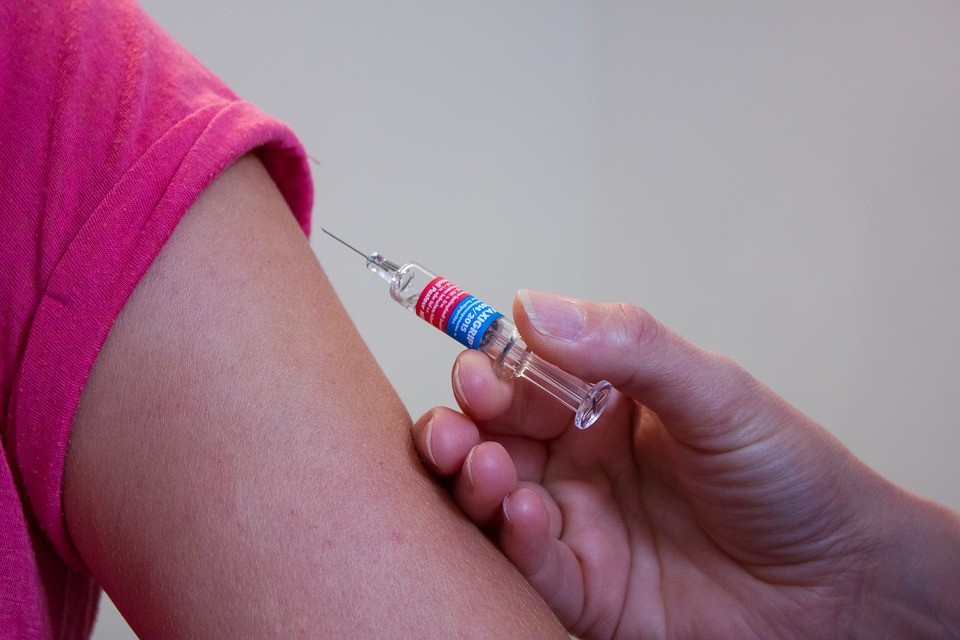If you feel lousy, you’re not alone.
Cases of influenza are spiking now in Colorado and across the U.S.

Many people are suffering with chills, fevers, a cough, runny nose, sore throat, headache and body aches. While those symptoms can also be consistent with COVID-19, experts say cases of influenza A are dominating the winter respiratory virus season right now. (Don’t confuse influenza with extremely contagious stomach bugs, like norovirus, which some people also call the stomach flu.)
So far, the 2024-2025 flu season has been tough. According to officials with the U.S. Centers of Disease Control and Prevention (CDC), the flu this season has thus far caused:
- More than 24 million illnesses.
- 310,000 hospitalizations.
- 13,000 deaths (including 57 among children).
What can you do if you’re feeling sick and you think you have the flu?
If you are experiencing flu symptoms, check with your doctor right away. You can get tested to learn exactly what you have, whether it’s flu, COVID-19 or RSV. And there’s a treatment called Tamiflu that can shorten the duration of your illness if you have influenza. But you need to start taking Tamiflu early in the course of the illness.
Most importantly, if you haven’t gotten your flu shot yet, it’s not too late. Everyone ages 6 months and older should get a flu shot, and there are special stronger versions of flu vaccines for older people and those who are immunocompromised.
Call your doctor’s office, or head to a nearby pharmacy, and get your flu shot now. In recent years, the U.S. has experienced strange spikes of flu in the spring. If you get a flu shot soon, you can protect yourself during the remainder of the winter respiratory virus season and throughout the spring.
To learn more about the flu and to get answers to your top questions, we spoke with Dr. Michelle Barron, a professor of medicine and infectious diseases at the University of Colorado School of Medicine.
What’s happening with the flu now?

Barron said cases of the flu have been rising quickly since late December. Hospitalizations have been spiking too.
“Right after New Year’s, all of a sudden, the number of people who needed to be hospitalized with the flu just shot up,” Barron said.
How concerned are you about the spike in flu infections and hospitalizations?
What are respiratory illnesses doing now?
Interested in knowing the risk of respiratory illnesses in your community so you can make an informed decision about protecting your health? Check out this CDPHE surveillance dashboard that displays date from wastewater tested for the presence of viruses at 20 facilities around the state.Barron said she’s concerned primarily because vaccination rates for all preventable illnesses are declining. Some people have developed a “ho-hum” attitude about flu, COVID-19 and other diseases. They’re not taking them seriously, and if they skip vaccines for themselves or their children, they’re putting themselves and others at risk.
“Everyone has heard about the flu, but they don’t appreciate that it can be dangerous,” Barron said. “People think, ‘Oh, it’s just the flu.’ But 25,000 people still die from the flu in the U.S. every year. And we can prevent some of those deaths.”
Why are cases of the flu bad right now?
It’s typical for flu cases to rise during the winter respiratory virus season when more people are spending time in crowded, indoor settings. Some years, flu cases start rising relatively early in November and December. This year, flu infections and hospitalizations shot up dramatically after the holidays, Barron said.
Which of the winter viruses — flu, COVID-19 or RSV — are causing the greatest number of infections and hospitalizations right now?
Currently, among adult patients who have had to be hospitalized for winter respiratory viruses, Barron estimates that about 60% are suffering from the flu, about 30% have COVID-19 and about 10% have RSV (which stands for respiratory syncytial virus). Learn more about RSV.
And some of these patients are dying, Barron said.
Some people who get severely ill with the flu get other illnesses like pneumonia. Or they might suffer a heart attack and die. In that case, the death might be attributed to a heart attack, but it certainly is related to a flu infection, which could have weakened a person’s body and could have been prevented had the patient gotten a flu shot.
Remind me of the basics. What exactly is the flu?
The flu is a respiratory illness caused by the influenza virus. There are three types of the virus, but only two (influenza A and influenza B) are responsible for the annual flu season, which can stretch from September through April.
The disease is highly contagious and spreads primarily through respiratory droplets from person to person when people sneeze or cough. The virus changes from year to year. That’s why we need a new flu shot every year.
Are some people at greater risk for getting severely ill from the flu?
“Yes. If you’re older or very young, or you have underlying medical conditions that impact your immune system, you’re at higher risk,” Barron said.
Pregnant women also are at greater risk and should protect themselves.
“We’ve been seeing higher rates of pregnant women becoming infected and hospitalized with influenza and other illnesses,” Barron said.
Misinformation has reduced vaccination rates during pregnancy.
“Some people think, ‘I’m young. I’m healthy. Why would I need a vaccine?’ But they’re not thinking about the fact that when you’re pregnant, your immune system is not as strong,” Barron said.
She strongly advises pregnant women to get all of the recommended vaccines.
What should people do to protect themselves from the flu and other winter respiratory viruses?
The answer is very simple: get vaccinated.
“We have many very good, very safe, very effective vaccines,” Barron said.
Each year, the effectiveness varies because vaccine makers have to guess in advance exactly which variants of each virus will be spreading much later. But even if the flu vaccine is not a perfect match, it will help protect people from hospitalization and death.
“The vaccines do not necessarily keep you from getting sick, but they decrease severity. So, if you get a flu vaccine, you are much less likely to end up in the hospital,” Barron said.
“The other reason it’s important to get your shots is that you will be in contact with other people: from family members to co-workers and friends. If you don’t get a vaccine, and you get sick, you’re much more likely to give an infection to someone else,” Barron said.
“You may be young and healthy, but that doesn’t mean that everybody around you is also healthy, and you want to protect them,” she said.
What else can people do to stay healthy and avoid getting the flu?
The basic rules for staying well apply. Whether you’re trying to avoid getting sick from the flu, COVID-19, RSV or the common cold, Barron advises people to take the following precautions:
- Wash your hands frequently with soap and water.
- Cover your cough.
- Stay home if you’re sick. Don’t spread illnesses to other people.
- If you can’t wash your hands with soap and water, use hand sanitizer. But remember that sanitizer doesn’t kill viruses that cause stomach bugs, like norovirus. To kill these bugs, you must use soap and water or bleach.
- Clean surfaces frequently. (Barron keeps bleach wipes handy.)
- Clean your devices. If you have washed your hands, but not your phone, and you touch your phone then eat, you can get sick.
- If your hands aren’t clean, avoid touching your face, eyes or nose because you can spread viruses.
I skipped getting a flu vaccine. Is it too late to get one now? And how long does it take for the vaccine to go into effect?
“It’s not too late to get your flu shot,” Barron said. “Flu season typically runs through March, sometimes as late as April or May. So even though we’re seeing a spike now, we haven’t started to see influenza B yet.
“We typically start to see influenza B right around spring break,” Barron said.
Whenever you get your flu shot — or another vaccine, like the one for COVID-19 — it will take about two weeks for the vaccine to become fully effective.
“So it’s still worth getting your vaccines,” Barron said. “They’re very effective.”
What should I do if I’m traveling? Are airports still places where viruses spread easily?
Yes. Crowded places like airports can be bad for exposure to viruses that make people sick.
Barron always wears a mask in the airport and often on the plane.
“Once you’re on the plane, the air circulation is really good, unless you happen to be next to someone who is coughing or sneezing. Then, you’re in the splash zone, so you’ll want to keep your mask on.”
RELATED: Colorado Just Made It Much Easier To Know When COVID and Other Viruses Are Spiking
Editor’s Note: The Colorado Times Recorder occasionally posts articles, like this one, from UCHealth Today, published by UCHealth, the hospital associated with the University of Colorado School of Medicine. Our goal is to provide as many people as possible with accurate information about medical issues that are poisoned by misinformation, particularly as discussed on social media and talk radio.




